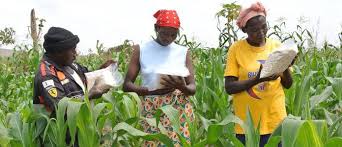The International Fund for Agricultural Development (IFAD) has committed $68.9 million to the development of the Nigerian agricultural sector over the past four years.
The National Programme Coordinator, of the IFAD’s Value Chain Development Programme (VCDP), Dr. Ameh Onoja, who gave this hint at a Commodity Alliance Forum (CAF) workshop on Friday in Abuja, explained that the amount was from annual sales of 140, 000 Metric tons (mt) of rice and 30,000mt of cassava to farmers.
According to him, through the VCDP which started in 2014, farmers’ incomes have increased while processors in the six participating states, namely Niger, Benue, Anambra, Ebonyi, Ogun and Taraba also enjoyed sustained raw materials supplies amongst other positive impacts.
The coordinator explained: “Through this model, the program has doubled farmer’s income and created a reliable and sustainable raw materials supply system to processors in the participating states.
“The key private sector drivers of the platform are major off-takers like OLAM in Benue and Taraba, Onyx in Niger, Popular farms and FTK Cassava Mills in Taraba, Ebonyi Rice World in Ebonyi, Harvest Feeds and Agro-Processing Limited in Ogun and JOSAN Nigeria Limited in Anambra.
“The engagement of the private sector players by the VCDP through CAF has resulted in 140, 000 mt of rice and 30, 000 mt of cassava on an annual basis, which correspond to $68.9 million as incremental sales and revenue into the Nigerian economy”, the VCDP leader added.
Onoja, who commended the contributions of OLAM to the development of the rice value-chain and CAF in Benue State, described the CAF as a business transaction and knowledge sharing platform for farmers, government and private sectors in the participating states.
In her remarks, the IFAD Programme Officer, Ms. Mariatu Kamara, harped on the importance of public private partnerships in project execution, especially the CAF model.
She pointed out further that in addition to serving as transaction, market inclusion and empowerment forum for smallholder farmers, the CAF model also connected parties together while leveraging resources to upscale farmers’ performance, increase their income as well as living standard.
Kamara disclosed that through the project CAF model, smallholder farmers in Benue state only, produced 25,000mt of farm crops and realize an estimated $9 million proceeds.






